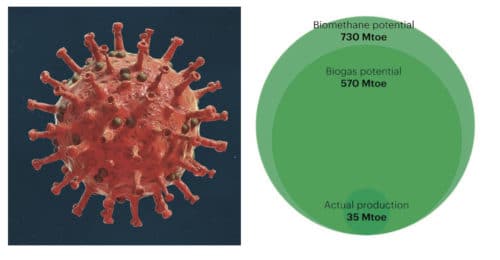
As the UN has been at pains to emphasise in recent weeks the coronavirus – while devastating, deadly and destabilising – is temporary, climate change is permanent. And the two have a causal relationship. If we want to prevent the emergence of such viruses we must act on the latter.
“Today, worldwide, there is an apparent increase in many infectious diseases… this reflects the combined impacts of rapid demographic, environmental, social, technological and other changes in our ways of living. Climate change will also affect infectious disease occurrence,” the World Health Organisation wrote in 2014.
For example, the need to burn biomass in developing countries presents a challenge: many people encroaching into previously undisturbed habitats to collect firewood. So biogas offers a solution: it reduces reliance on solid biomass as a cooking fuel, improving health and economic outcomes.
In a world ravaged by coronavirus, but facing the far bigger challenge of climate change, how can we ensure the biogas industry can attract the investment needed to deliver its full potential, including the creation of 12-15 million green jobs? You’ll find the answers when you attend the session “The global view: Finance, Global Economics, and Sustainability in the post virus world” at the upcoming World Biogas eFestival. In this session, you’ll hear from The World Bank, the Centre for Climate Finance and Investment at Imperial College and the Minister of Energy for the Kingdom of Morocco.
The World Biogas eFestival, which will take place on 18th-21st May, will also address topics relevant to the industry worldwide, such as food waste collections and quality, upgrading to biomethane, digestate output and treatment and safeguarding health and safety in the face of the coronavirus pandemic.
Because the event is online, attending is easy. Just log in from your home or office computer. You can watch presentations and network with the other delegates. Click here to find out more.

